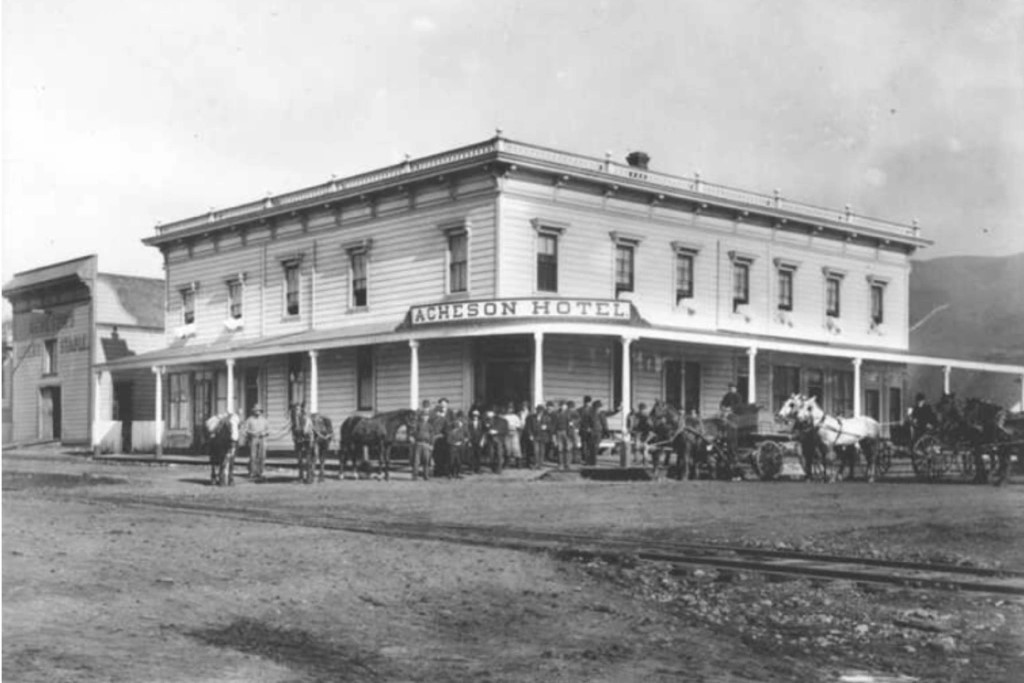
These days, local businesses often push for the opportunity to have extended operating hours.
So something of a surprise was in coming across a Berkeley Daily Gazette item from a century ago on Aug. 3, 1925, that the Berkeley Downtown Association had decided “to make every effort to have every store close by 6 o’clock each evening and stay closed on Sundays and holidays.”
The impetus came from local church members pressuring merchants, but not a few of the merchants seemed very supportive.
“Mrs. Jessie White, secretary of the association, declared the she had found that it is practically impossible to legislate against stores staying open. Those present at the meeting felt that the best and perhaps the only way to have early closing is to use public opinion and propaganda as a means to reach this end.”
Old hotel: On Aug. 1, 1925, construction was announced for a “Class C” commercial building 24 feet high and containing up to eight storefronts at the northeast corner of University and Shattuck avenues.
“This will replace the old … hotel structure which was recently vacated by stores and a rooming house. This was, in its day, one of the finest buildings of the city,” the Gazette reported.
“The old Acheson Hotel is known to pioneer residents of Berkeley as one of the most important buildings in the city’s early history,” the paper continued Aug. 5, 1925. “The lobby of the hotel was the scene of many political confabs, and at the time it was considered one of the finest hostelries in the East Bay.”
The papers of that year were full of reports like this of new developments. It was the “Roaring Twenties,” and money was pouring into real estate.
New lodge: Berkeley’s Lodge #270 of the International Order of Odd Fellows announced July 31, 1925, that James Plachek had been selected as architect for the new lodge building that would be built on the northwest corner of Bancroft Way and Fulton Street. This is now across the street from Edwards Track Stadium, but a century ago it was a full block from the smaller campus.
Student hurt: A UC Berkeley student and swimming star, Sidney Glasson, had been seriously injured in Yosemite in late July 1925, when he was working at Camp Curry. He had been cleaning out an empty swimming tank and was knocked down by the hose, fracturing his skull.
Summer classes: Cal’s summer session came to an end at with final exams July 31. It was called “one of the most successful … in the history of the University.” More than 5,300 students (more than 3,000 of which were from California) from every U.S. state and 16 foreign countries had taken classes that summer on the Berkeley campus.
Hill fire: A “serious grass fire” threatened homes “on Vincente Road, near the Berkeley line” on the afternoon of July 31, 1925. “This was the first serious grass fire of the season,” the Berkeley Fire Department reported to the Gazette. Two engine companies successfully extinguished the blaze with “wet blankets and chemical lines.”
Bryan funeral: On July 31, 1925, a thousand people, including political leaders and other dignitaries attended a rainy memorial service and burial ceremonies for famed U.S. statesman William Jennings Bryan at Arlington National Cemetery in Washington, D.C.
Previously, 20,000 people had paid their respects at his coffin when it stood in a church with an honor guard of veterans of the Spanish American War. The coffin stand was surrounded with flowers, including an arrangement sent by President Calvin Coolidge made of rose buds from the White House gardens.
Bay Area native and Berkeley community historian Steven Finacom holds this column’s copyright.